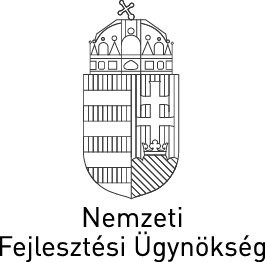A concise dictionary to understand tender invitations2012. április 5.
This is a crash course, a brief glossary of the tender system, which may serve as a guideline for anyone wishing to become familiar with the opportunities offered by the New Széchenyi Plan, if only for a single project.
The period in question: Between 2007 and 2013 22.4 billion euros of development funds are available to Hungary. So there’s still some time to win tender funds, have grants credited to your bank account, and lean back and say: “YES! I did it!” There’s no way to see the plans of the subsequent years yet, but you can see that this year is there and is rather favourable for subsidies. Why should you miss the opportunities of this cycle and let others take away your money? You should grab the opportunities and earn as many subsidies as possible to enrich Hungarian enterprises. Most of these funds are your contributions, so why not come off well and get back as much as possible? Submit proposals, win and fulfil your dreams by using a “special” opportunity. Even 30% support is a godsend anyway, let alone 100%. What’s more, it never happened before that tenders were open around January. The beginning of the year was more about redistributed funds, extended deadlines and great expectations. Now the time has come to make a move and come forward with a good plan! 2013 will only be the after-effect of this year, when most of the funds are distributed.
Development areas: This 7-year tender cycle has seen coordinated government and EU development projects in six key areas, including the economy, transport, human resources, environment and energy management, regional development, and public services.
What is a tender proposal and who should submit proposals?
A tender proposal is a set of documentation, the description of a project idea/plan. As regards its function, it is an application prepared to get external funding, i.e. a definitive non-refundable subsidy for a project. Writing the proposal is always the second step; everything starts with a good idea, a development plan which should be implemented. Tenders were invented for people who have such ideas. They are an opportunity for enterprises that can get by financially until the arrival of the “free money” as they would also be able to fulfil their development ideas without the support. (The first and most important element of a good proposal is an existing development intention that may be realistically implemented.)
Writing the proposal is the second step; everything starts with a good development idea.
The lifecycle of a proposal: Once written up, the proposal is posted to the Authority, where it undergoes an automatic evaluation process. First it is evaluated for formal compliance, which is followed by a professional evaluation. After a couple of months, you receive a notice of approval or refusal, which specifies the deficiencies and defects of your proposal. When you receive the notice of approval, it is time you really got down to work. You sign a contract with the authority. The point is that you should implement your proposal just the way you described it in the tender documentation. Between the start and closing of the project, there are the processes of monitoring, reporting, final reports and the closing itself. The most important phase in the life of a proposal is when the “dream” that you are fulfilling gradually becomes visible, and the development idea leaves behind the planning stage to come to life. The supporting organisations expect certain mandatory activities in exchange for the non-refundable grant, imposing and checking the observance of pre-defined indicators. These are the mandatory elements that each enterprise, whether submitting or planning to submit a proposal, should be aware of.
- The primary grounds for disqualification include but are not limited to the following ones, which are laid down in nearly all tender invitations:
- The most important reasons for exclusion apply to enterprises with negative equity, bankruptcy-liquidation or winding up and debt to the government
- incompatibility
- unsettled labour relations
- an entity which demonstrably provides untrue, false data which materially influence the professional and financial content of its proposal may not submit an application or will be disqualified later on.
- applicant’s activity subject to a set of restrictions,
- restrictions in the industry concerned
- restrictions based on the economic indices of the enterprise
- territorial restrictions
(Source: Aphrodite Papadopulu, Expert, Brussels Centre, Hungarian Tender Consulting Centre
Piac és Profit online/ piacesprofit.hu)





